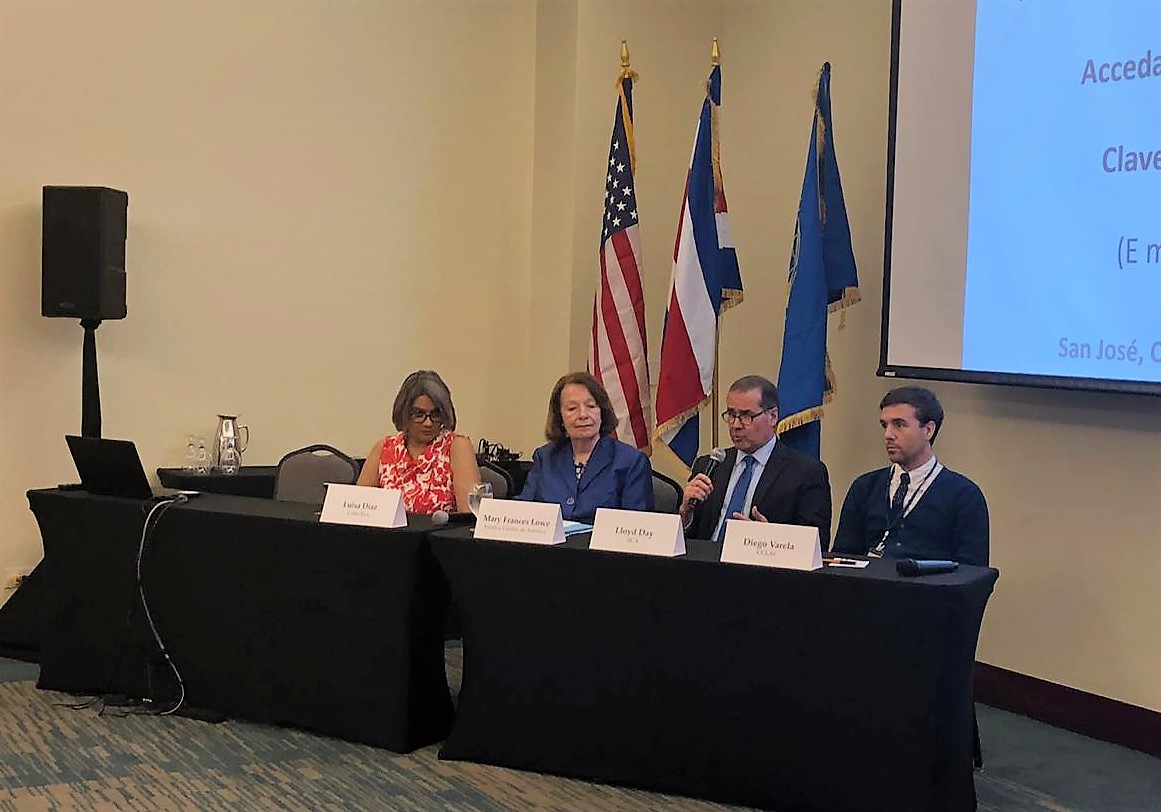Delegates from 18 Latin American and Caribbean countries reviewed standards to be approved by the Codex Alimentarius Commission in Geneva in July.

San José, 27 June 2019 (IICA). Delegates from 18 countries in Latin America and the Caribbean (LAC) reviewed the more than 27 new standards to be approved by the Codex Alimentarius Commission at their meeting in Geneva, Switzerland on 8-12 July.
Codex Alimentarius is the benchmark organization for food safety standards, which is recognized by the World Trade Organization (WTO). Its science-based regulations seek to ensure food safety and quality, as well as international trade free from unjustified restrictions.
The event that facilitated the discussions on the standards took place in San José, Costa Rica, and was organized by the Inter-American Institute for Cooperation on Agriculture (IICA) and the US Department of Agriculture (USDA), with the support of the Codex Coordinating Committee for LAC.
Delegates deliberated on aspects of the upcoming regulations on food hygiene, safety and human nutrition, in relation to the harmonization of the code of practice for fish and seafood products and food additives, as well as standards on quinoa, dried or dehydrated garlic, vegetable oils and panela, inter alia.
Erick Bolaños, Agricultural Health Specialist at IICA explained that, “Codex Alimentarius standards provide a frame of reference for national standards in each country and are designed to protect consumer health and to promote trade that is free of unjustified restrictions”.
He went on to explain that, “The standards for panela and quinoa prompted much discussion, because these two products are of particular interest to many member countries of the Institute”.
Bolaños highlighted the fact that the meeting involved a detailed review of the strategic plan that Codex Alimentarius will implement over the next few years, and of the primary principles governing that organization.

The IICA specialist insisted that, “Currently, they are some who are pushing for the introduction of non-scientific factors into the process of adopting standards, which is something which would endanger international trade in agrifood products. It is imperative that Codex should continue to rely on science as the basis for the development of standards”.
In addition to the Costa Rica forum, the Institute will also host two online events to enable LAC countries to discuss joint strategies and to define their negotiating positions for the upcoming Codex Alimentarius international meetings.
It will also provide support to countries to facilitate their attendance at the Codex Alimentarius Commission meeting in Geneva.
More information:
Erick Bolaños, Specialist in Agricultural Health, IICA.











